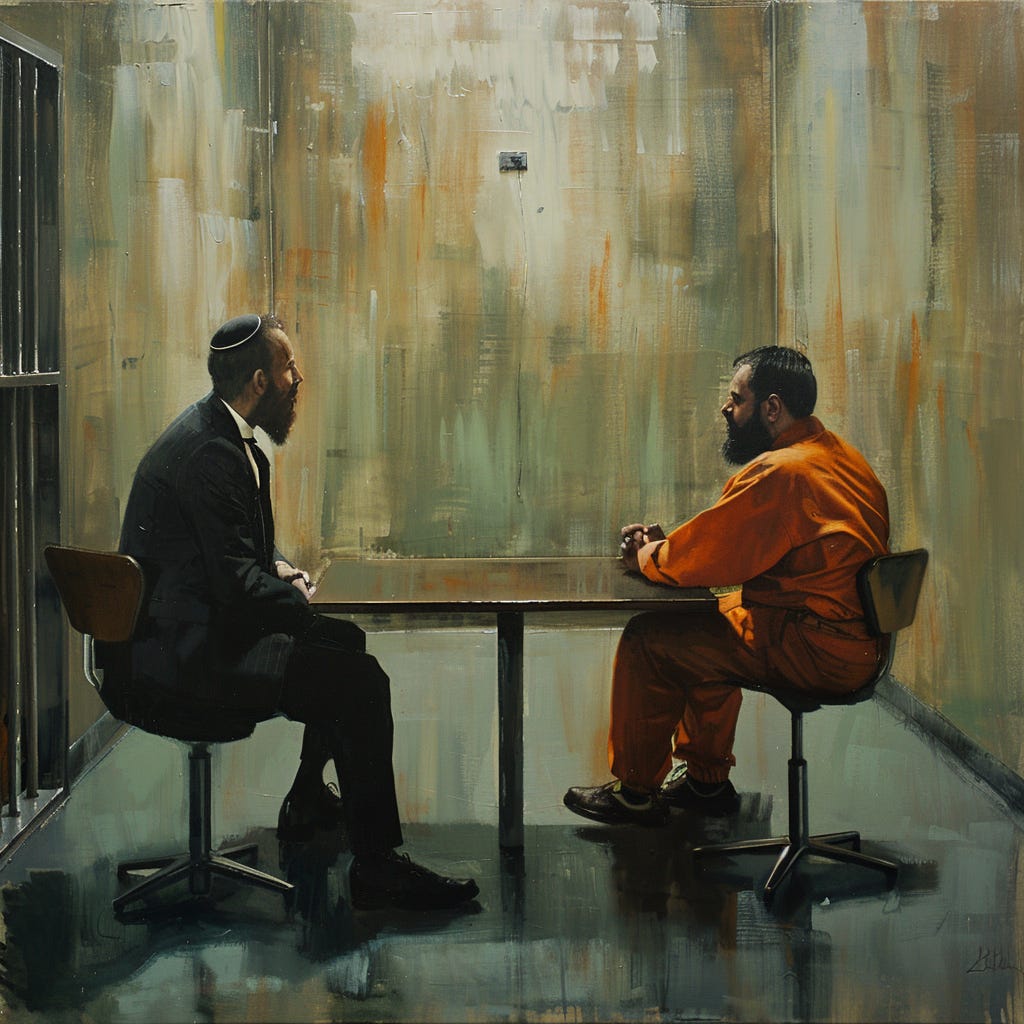Who are your people?
And what does it means once you find them?
If you dig these newsletters smash that ❤️ right above so more folks can discover it on Substack. Thanks! Now onwards…
My favorite story about community comes from a man I'll call Brian who spent time inside a New York prison.
The most disgraced man in this prison was a pedophile. Nobody talked to him or came near him. Not even family visits. He was Jewish, and the only person who would see him was a Rabbi who came every week.
Brian didn’t get why the Rabbi would spend time with a pedophile. In prison, pedophiles are the bottom of the totem pole. They’re not allowed to sit with most folks. They’re often beat up and given zero respect.
“Why are you spending so much time with this monster?” Brian asked.
The Rabbi responded: “Because when he leaves this prison, he’s not going back to your community. He’s coming back to ours.”
I heard this story at a men’s group info session. I saw Brian once and never saw him again. It’s the kind of story that sounds too much like a parable to be true, but either way it gets me thinking.
WTF is community
For one, what the hell is a community in 2024? Who the hell are my people? Who am I meant to stand for?
I think communities where people truly care for each other are extremely rare. High fives to anyone reading this who can comfortably say they’re a part of one. The author Robert Putnam wrote a famous book called “Bowling Alone” in 2000 about the decline of American communities, and that was before social media became a thing.
For everyone else, my working definition of community goes something like this: one day you wake up, somewhere between the age of 30 and 50 years old, and decide your friends are your friends. Those are your people whether you’re super into them or not.
This is an under appreciated vibe shift. Folks spend less time seeking new friends, and a lot more time learning the good, bad, and ugly of the friends they currently have. This can create rifts. I think the parable of the Rabbi starts to become useful here.
Pillars of community
Here’s how:
Connect instead of cancel. The popular narrative today is to cancel or ignore the person who does a Bad Thing. Or at least say something like “How can you still be friends with X” after Person X does something bad. I think that advice is useful in one’s 20s. For adults with a community mindset, you give them support and accountability. This is what makes communities stronger. Isolating someone deepens shame which often creates more bad behavior.
Exclude most people. “Inclusivity” has done great things for rolling back discrimination. But it’s the opposite of what makes for tight communities. If a community is for everybody it ends up being for nobody. Old folks, who tend to be more community minded in my opinion, understand this. They are the masters of not giving a hoot about most people. By clearly defining “who are my people,” I know who to care for, and who I don’t. Creating boundaries creates more community ties, not less.
Treat folks like they’re around forever. It’s easy to put off connecting with friends. I tend to fall into a trap of “out of sight out of mind” if I don’t happen to see a particular friend for a while. But nothing will impact me more over the course of my life than how my friends show up. Sooner or later I’ll see that friend again, and how they impact me is largely dependent on how I’ve nurtured the relationship. If I think about this occurring hundreds or thousands of times over a lifetime, perhaps attending to relationships is the single most pressing thing.
I don’t think it takes a religious community to exemplify these points. I think it takes a multi-year group text. Or anyone who’s shown up to a birthday party like 4 years in a row. Or someone you’ve platonically sent 10+ memes to. These are grounds for being common law homies. The kinds of homies that visit each other in jail.
🙋♂️ I’m taking a note from my friend’s Justin Mares’ newsletter on health and biz. At the end he simply asks how he should grow his newsletter. How should I grow this newsletter? If you have ideas, let me know.
Follow me on Twitter and LinkedIn.
New free tool: FindaMensGroup.com
If you’re interested in checking out men’s groups I’ve built a tool for you: findamensgroup.com.
It’s a simple and free directory of men’s groups across the world.
Filter by location, type of audience (e.g. youth, veterans), and meeting type (e.g. retreats, weekly virtual meetings).
If you know someone who is interested in learning about men’s groups, send it to ‘em. To my knowledge, it’s the only men’s group directory online.




Super insightful, Johnny. You’re building community right here too. Well done and such important work.